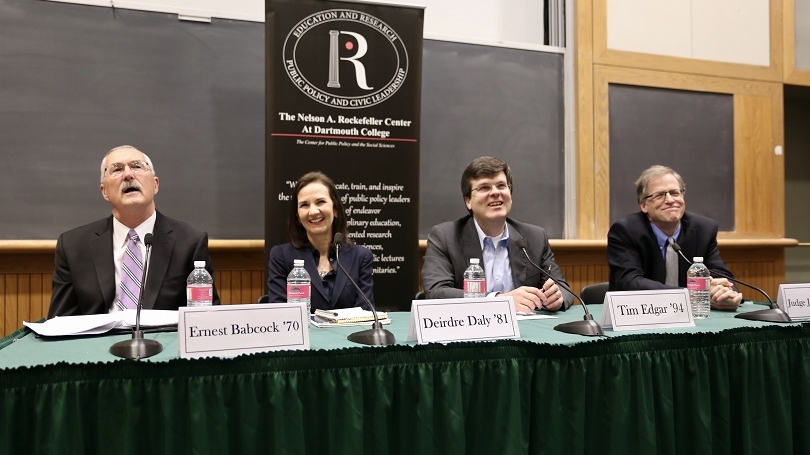
- Public Policy
- Leadership
- Funding
- News & Events
- About the Center
Back to Top Nav
Back to Top Nav
Back to Top Nav
Back to Top Nav
In 2012, Defense Secretary Leon E. Panetta once warned that the United States is susceptible to a “cyber-Pearl Harbor,” citing the destructive potential of cyber-aggression. Years later, the premise of Secretary Panetta’s statement holds stable, as issues of cyber-security continue to make headlines. As the digital age has progressed, cyberspace has consistently proven to be a dynamic, open, and efficient platform for economic growth and the exchange of ideas. However, the very openness that makes this space so innovative has created critical vulnerabilities. Without setting off a single explosive, state and non-state actors can render infrastructure quiescent, steal/delete information, or even commandeer resources towards malevolent objectives in complete secrecy. Contemporary government policy is reluctant to take substantial steps forward in the realm of cybersecurity so as not to impede on privacy or the economic benefits of an open, fluid internet. Nonetheless, if the U.S. continues to exercise hesitance in developing stronger measures of cybersecurity, it will continue to foster stark vulnerabilities to cyber-attacks that could lead to dangerous outcomes with potential we cannot predict. In the same way that the destructive potential of cyber-aggression remains unknown, international norms guiding the use of cyber-resources and capabilities remain undefined. Such ambiguity breeds a sort of cyber-anarchy; an acute security concern that the United States should be keen to neutralize.
Did Russia manipulate the U.S. Presidential election? Is Edward Snowden a hero or a criminal? Such debates deserve a louder conversation. In that vein, during the 2017 Law Day Celebration at Dartmouth, the Rockefeller Center hosted a series of events on May 4-5 that discussed the legal dimensions of cyber-security. On Thursday, May 4, particular attention was given to the Fourth Amendment in the Stephen R. Volk ' 57 Lecture by U.S. District Judge Jeffrey A. Meyer. Judge Meyer addressed the lack of a coherent theory about what the 4th amendment is meant to protect. Privacy? Property? Other dignity values? What has congress done, especially in the cyber context of the law? From an institutional actor standpoint, as of late, have the courts restricted themselves by contracting the exclusionary rule and expanding the doctrine of qualified immunity? Do you side with Silicon Valley or the government? Are drones in your backyard worth the perennial safety value they allegedly symbolize? Meyer offered a glimpse into a constantly evolving debate with far-reaching implications and opened a conversation with the audience on how policy can adequately address the tension between economic growth, privacy, freedom, and so much more that this convoluted issue entails.
On May 5, the commentary continued with a distinguished panel addressing “Electronic Search and Seizure: Balancing The Government’s Need for Information and Citizens’ Right to Privacy in an Age of Terrorism.” A pivot from domestic politics gave rise to a deeper look into foreign policy on cyber-security. What can the United States do to lead and prescribe norms to a weapon burdened by enigmatic conceptions of right and wrong? What sacrifices are we willing to make for security? The discussion was colored by the perspectives of panelists from a variety of accomplished and associable backgrounds. Moderator Howard Morse ’81, was joined by Ernest Babcock ’70, Deirdre Daly ’81, Timothy Edgar ’94, and Judge Jeffrey Meyer in a lively discourse on this exciting, dynamic field of law and policy.
Submitted by Taylor Morrell ’19, Rockefeller Center Student Program Assistant for Public Programs
The views and opinions expressed and any materials presented during a public program are the speaker’s own and do not necessarily represent the views and opinions of the Rockefeller Center or constitute an endorsement by the Center.